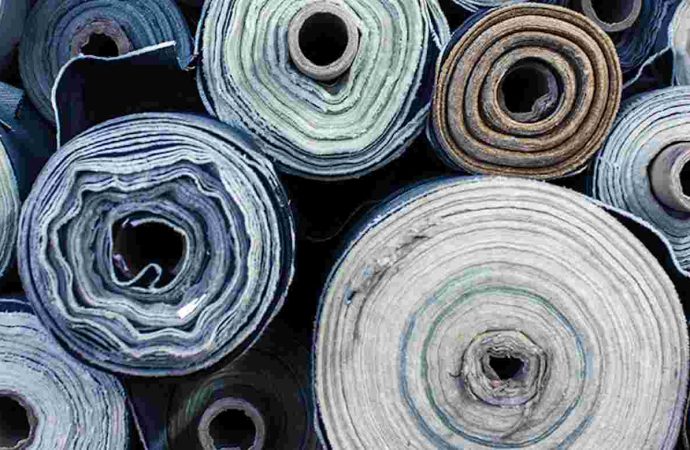Introduction The American textile industry has seen a resurgence one driven not just by numbers and production capacity, but by a powerful shift toward trust, transparency, and technical excellence. In a global landscape once dominated by mass-produced, offshore garments, a new generation of brands is rising. At the heart of this transformation is the Certified
Introduction
The American textile industry has seen a resurgence one driven not just by numbers and production capacity, but by a powerful shift toward trust, transparency, and technical excellence. In a global landscape once dominated by mass-produced, offshore garments, a new generation of brands is rising. At the heart of this transformation is the Certified Garments Company, a model of innovation and integrity. But how are they changing the game, and why is their role more vital than ever? Let’s pull back the curtain on what’s really happening behind the seams.
The Rise of American-Made Textiles: Why It Matters Now
It wasn’t long ago that U.S.-based textile manufacturing was considered a fading legacy. Cost-cutting and outsourcing led many companies to look abroad, seeking cheaper labor and materials. But as global consumers grow more conscious of sustainability, ethics, and quality, the tide is turning.
Today, a textile manufacturer in the USA isn’t just a factory it’s a symbol of craftsmanship, compliance, and innovation. Companies that produce on American soil are reclaiming their relevance through superior standards, cleaner production methods, and tighter quality control. In this climate, certification isn’t just a badge it’s a business imperative.
What Makes a Company a “Certified” Garment Manufacturer?
It’s easy to slap on the word “certified” as a buzzword. But legitimate Certified Garments Companies are held to strict third-party standards. These may include:
- ISO certifications for quality management
- OEKO-TEX for safe and chemical-free textiles
- GOTS (Global Organic Textile Standard) for sustainable sourcing
- WRAP and Fair Trade certifications for ethical labor practices
Achieving these benchmarks requires a full-system commitment—from sourcing raw materials to stitching the final label. It’s not about optics. It’s about building a supply chain that brands and buyers can trust.
More Than Machinery: The People Behind the Process
You can’t manufacture trust. And behind every stitch, dye bath, and quality inspection is a network of skilled people making deliberate choices.
American textile manufacturers are investing not just in technology but in training. They are equipping workers with high-level craftsmanship skills, and investing in safer, more ergonomic work environments. Labor isn’t exploited—it’s elevated. The human element becomes a strength, not a cost. This re-humanization of the garment-making process is reshaping how clothing is valued, both by designers and end consumers.
Why Localized Manufacturing Is a Game Changer
Producing garments in the U.S. isn’t just about patriotism it’s about precision, accountability, and speed.
Here’s how local production changes the game:
- Shorter Lead Times: With no overseas shipping delays, brands can restock or release collections faster.
- Improved Quality Control: Being closer to the factory allows for real-time monitoring and adjustment.
- Smaller Carbon Footprint: Reduced transportation means reduced emissions.
- Agility: When trends shift, manufacturers can pivot quickly—something global supply chains struggle with.
And in a world that demands both ethics and efficiency, being a textile manufacturer in the USA becomes a competitive advantage.
Sustainability Woven Into Every Thread
It’s not enough to make clothes. In today’s market, how you make them matters more.
Certified garment companies are pushing sustainability beyond marketing slogans. They are actively:
- Recycling water in the dyeing process
- Using biodegradable or recycled fabrics
- Minimizing textile waste through efficient cutting techniques
- Sourcing locally when possible to reduce environmental impact
Sustainability becomes part of the design process—intentional, measurable, and central to brand identity. And it’s not just about environmental sustainability. It’s about social responsibility too. Ethical sourcing, fair wages, and inclusivity are part of the certification standards and increasingly demanded by customers.
Trust Becomes the New Currency
In a post-COVID era where supply chains were stretched thin, trust is emerging as the most valuable asset a brand can have. Consumers want to know where their clothes come from, who made them, and whether their purchases align with their values.
When a label says the garment was made by a Certified Garments Company, that communicates more than origin—it signals accountability, transparency, and quality.
Innovation Meets Heritage
Interestingly, many of today’s leading textile manufacturers are blending old-world techniques with modern technology. While they may embrace AI for supply chain optimization or 3D printing for design prototypes, they’re also reviving heritage dyeing methods, artisanal embroidery, and hand-finishing.
This fusion of the traditional and the cutting-edge makes their offerings not just garments—but stories you can wear.
A Future Sewn With Purpose
As we look ahead, it’s clear that the American textile industry is not fading—it’s evolving. Brands that align with Certified Garments Companies and invest in local textile manufacturing are building more than just collections. They’re building credibility. They’re earning loyalty. And perhaps most importantly, they’re contributing to an industry that values people, planet, and progress.
Final Threads
Choosing to support a textile manufacturer in the USA or a certified garment supplier isn’t just a purchasing decision—it’s a vote for integrity. It’s a step toward a future where fashion doesn’t just look good, but does good too.
The next time you see a tag that says “Made in the USA by a Certified Garments Company,” know that it carries with it not just fabric and thread—but ethics, quality, and care.
















